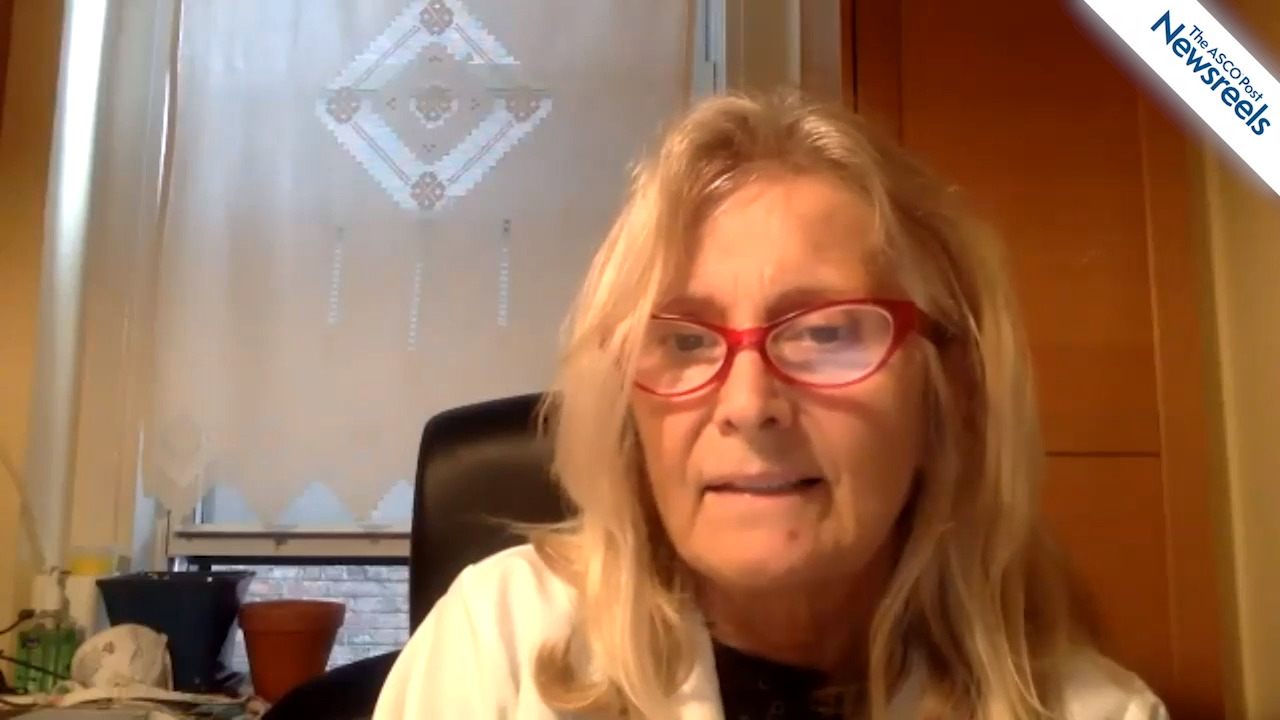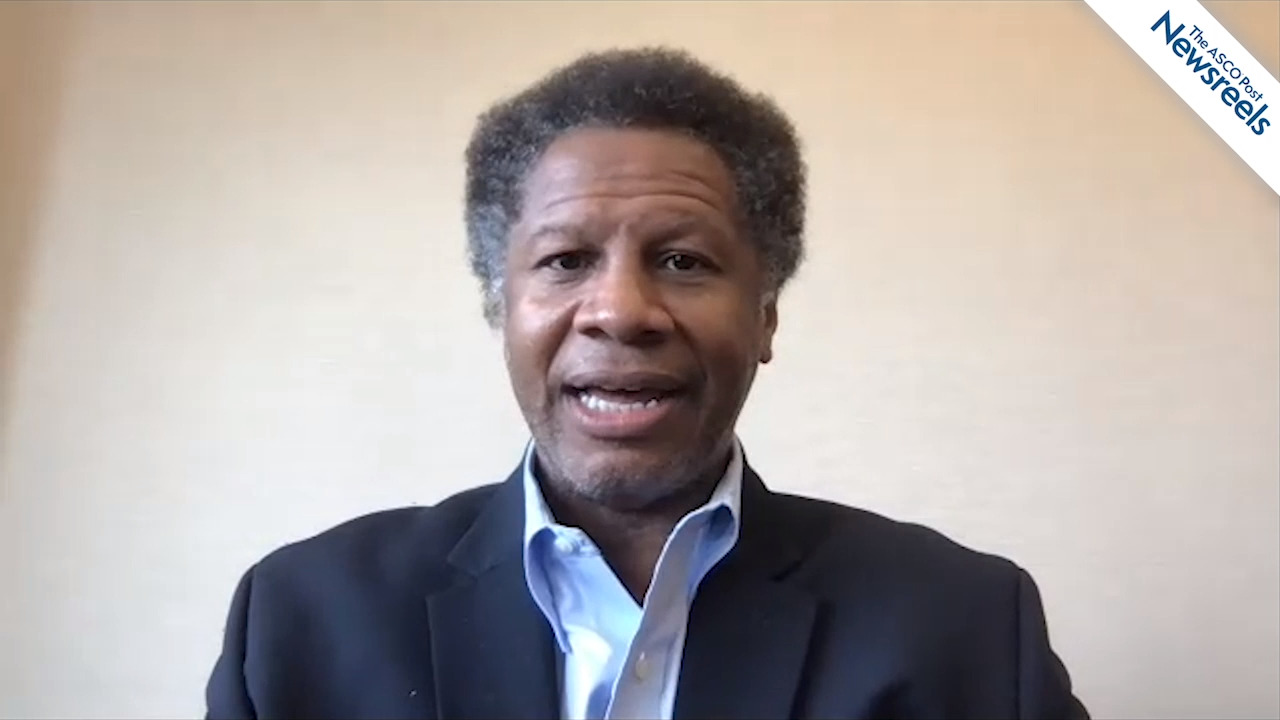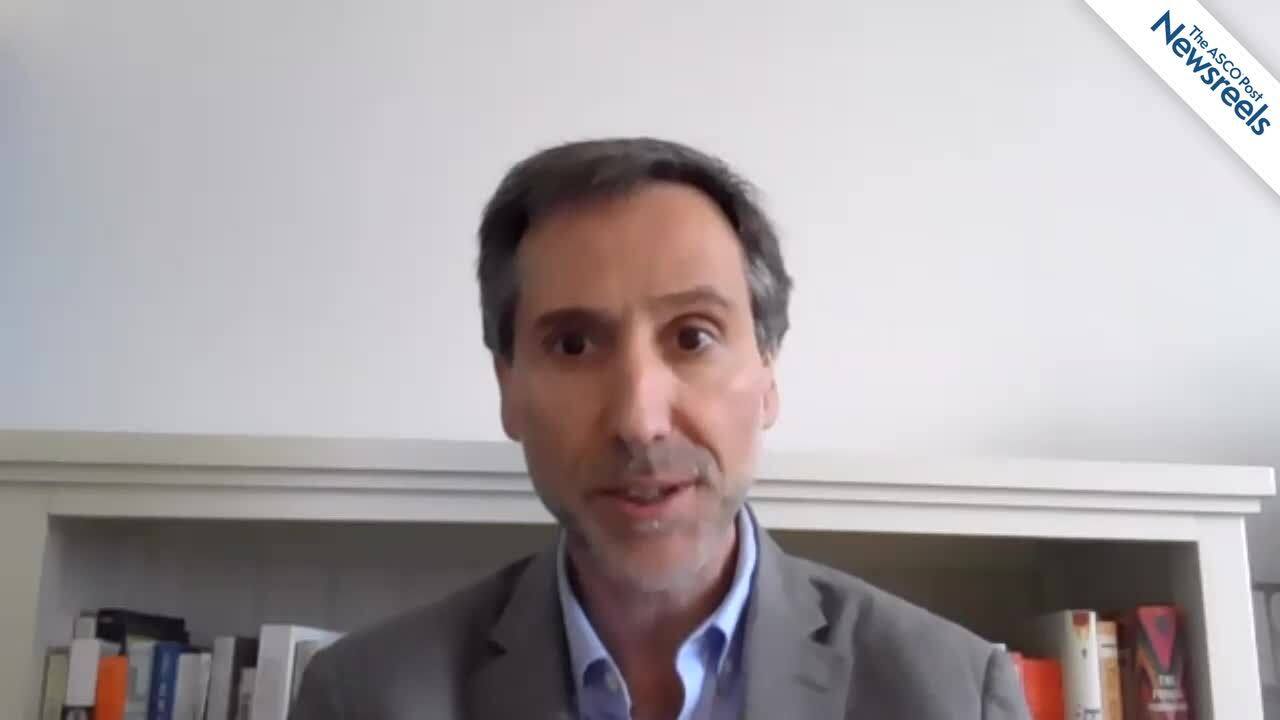Adam C. Palmer, PhD, on Immune Checkpoint Inhibitors: Additive to or Synergistic With Other Treatments?
AACR Virtual Annual Meeting 2020 II
Adam C. Palmer, PhD, of the University of North Carolina at Chapel Hill, discusses combining immune checkpoint inhibitors with other cancer therapies to provide patients with more chances of a response. In principle, similar benefits may result from sequential or biomarker-stratified treatments, which could be valuable in cases where toxicities may prevent full-dose combinations (Abstract 1047).
The ASCO Post Staff
Silvia Formenti, MD, of Weill Cornell Medical College, discusses her continuing work, and the promising results emerging, in combining radiotherapy with immunotherapy to boost abscopal response rates. This combination therapy extends the use of radiotherapy to promote antitumor T-cell responses for both local and metastatic disease (Session ED37).
The ASCO Post Staff
Kala Visvanathan, MD, of Johns Hopkins Bloomberg School of Public Health, discusses her analysis of data from more than 10,000 women with ovarian cancer. The results suggest that atorvastatin and simvastatin, lipophilic statin cholesterol-lowering drugs, reduced ovarian cancer death rates (Abstract 5782).
The ASCO Post Staff
Robert A. Winn, MD, of Virginia Commonwealth University and the Massey Cancer Center, discusses the COVID-19 pandemic and how it is exacerbating disparities in cancer care among racial and ethnic minorities and the medically underserved who are disproportionately affected by the coronavirus (Session VSS06).
The ASCO Post Staff
Antoni Ribas, MD, PhD, of the University of California, Los Angeles, Jonsson Comprehensive Cancer Center, summarizes the opening plenary session that addressed epigenetics and early detection, how the aging microenvironment governs response to therapy, AI-driven precision medicine, reprogramming human T cells, and opportunities for the future.
The ASCO Post Staff
Stacey A. Fedewa, PhD, of the American Cancer Society, discusses the increasing incidence rates of colorectal, breast, kidney, thyroid, uterine corpus, and cervical disease in younger patients. Data show that colorectal cancer is increasing most rapidly, while breast cancer—the most common cancer among young women—is rising at a slower pace (Session ED35).





